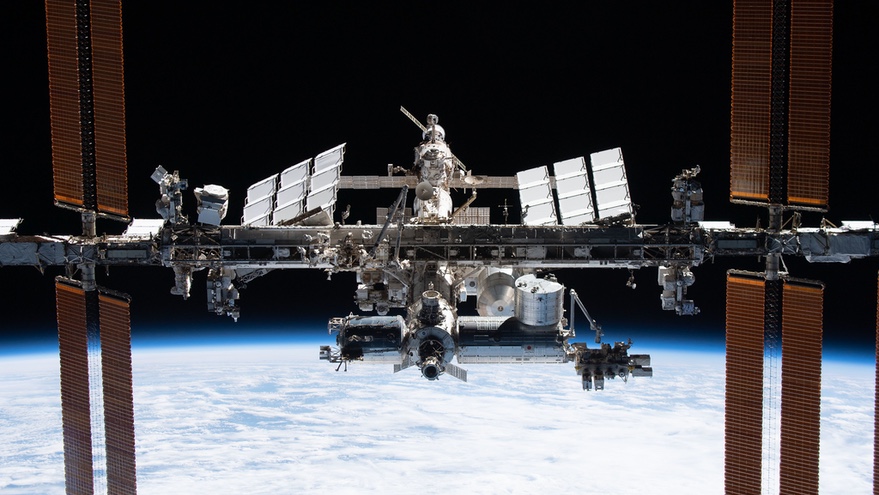WASHINGTON — The White House’s decision to extend operations of the International Space Station through the end of the decade is a “trigger” for other partners to make their own plans to continue participation in the station.
NASA announced Dec. 31 that the Biden administration agreed to continue operations of the ISS to 2030. Federal law, last updated in 2015, authorized operations of the station through at least 2024.
The announcement, while not unexpected, still requires other ISS partners to agree to continue operations of the station after 2024. Josef Aschbacher, director general of the European Space Agency, tweeted Dec. 31 that he welcomed the decision and would submit a formal proposal to ESA’s member states for the agency “to continue until 2030, as well.”
Officials with two other ISS partners said NASA’s announcement will set in motion efforts in their countries to formally decide to continue participation on the station.
“We’re very happy to see the announcement from the U.S. side. That’s helping the decision process,” said Christian Lange, director of space exploration planning, coordination and advanced concepts at the Canadian Space Agency, during a virtual panel discussion at the AIAA SciTech Forum Jan. 6.
He suggested Canada was waiting for the U.S. to formally support an ISS extension before starting to consider endorsing it. “No one would have expected Canada to make a decision before the U.S. or even ESA or Roscosmos.”
Lange said the agency “will be working with our government to propose options and come to a decision in a timely manner,” but wasn’t specific on when that decision would come.
An official from the Japanese space agency JAXA offered a similar assessment. “We were seeking the trigger by NASA to extend the ISS beyond 2024,” said Naoki Sato, exploration lead at JAXA, on the same panel. “With that trigger, we have just started the discussion for the extension of the ISS.”
He said JAXA was hoping for a formal decision about Japan’s participation in the ISS after 2024 “within this year.”
However, the biggest issue remains whether Russia will continue to participate in the ISS after 2024. Dmitry Rogozin, head of Roscosmos, had previously suggested that Russia was not interested in remaining on the ISS through the end of the decade because of growing maintenance costs as well as Russia’s still-nascent plans to develop its own space station, even though Russia added two modules to its segment of the ISS last year. Rogozin recently told The New York Times that he would only accept an extension to 2030 if the U.S. dropped sanctions against two Russian companies.
Roscosmos has not publicly commented on the NASA announcement about extending ISS operations to 2030.
